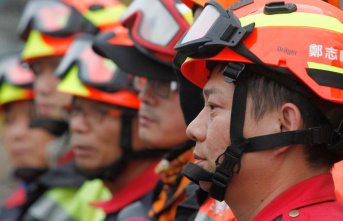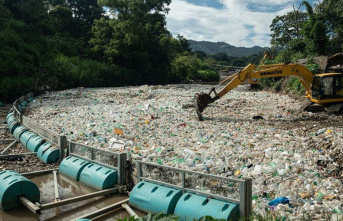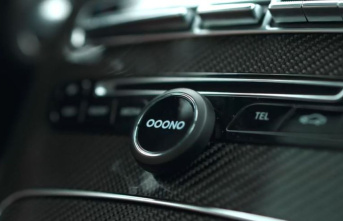Winter has also begun in Ukraine and fighting in the mud and cold is not expected to abate. Both sides will try to maintain their momentum in the coming months.
your momentum? That's right, both sides exert pressure and achieve success, albeit on different levels. In the case of Ukraine, the momentum is clear. First the offensive at Kharkov and now the liberation of Cherson. The Ukrainian army rolls and achieves great success. This is where Kyiv will want to join in with new offensives in the winter as well. To take advantage of the momentary advantage and not to give the Russians a rest of several months.
And the Russian momentum? It's less considered, but it's there. At the strategic level, Russia is constantly destroying the foundations of Ukrainian society. Economically, financially and now also in terms of power supply. With help from the West, Kyiv has so far been able to prevent the complete collapse of society, without this help it would have already happened. Ukraine itself could not provide the necessary war material, nor would it have the economic strength to get the country and its citizens through the winter. The morale of the population seems intact, but Russia will continue to try to destroy the elementary foundations that the country needs to survive. That would be electricity, heating and water – and winter is the best opportunity for that.
Moscow is also successful on the ground in the Donbass. The front shifts there are minimal, but so far Kyiv has not been able to really stop Moscow's troops. In the completely bunkered area, one kilometer of terrain gain means far more than in the open steppe. In addition, the warfare is based on an idea from the First World War, the "blood mill". The primary goal is to teach the opponent losses. In short: a decrease in fighting is not to be expected.
The Winter War represents an enormous challenge for the soldiers. In the field, the greatest threat to health and life does not come from the enemy, but from the weather. In Germany, the word “winter war” always brings to mind images from the Second World War. The frozen soldiers of the 6th Army in Stalingrad and the Battle of Moscow, in which Siberian troops drove the Germans in front of them in 40 degrees cold.
These pictures are deceptive. Such temperatures are possible in Ukraine, but not likely.
Average temperatures in Kharkiv Oblast in January are -3 to -8 degrees, in February -2 to -8 degrees. Winter varies between wet and cold above freezing and snow and cold below zero. The cold, wet season will be even more threatening for the troops on the field than the moderate frost. All of Ukraine is turning into mud and slush. In this war, the soldiers cannot confine themselves to the paved roads, they must go to these morass. Every movement, including walking, becomes extremely exhausting, and bunkers and ditches fill up with water and mud.
In such an environment, untrained troops quickly fall out without any enemy intervention. The troops have to lie on the wet ground for a long time or spend in flooded trenches. You have to lie down in mud and water, crawl through snow or mud. It is unavoidable that they get completely soaked. Soldiers who get wet quickly catch cold, hypothermia, and die if they can't dry themselves and warm up. In damp clothes, even in moderate cold, a soldier will quickly die. Separating dry and wet gear, changing gear, and then drying the wet gear is far more difficult in the field than it sounds. That takes tremendous discipline. Negligence will inevitably lead to lung disease and frostbite, leading to major failures. The weather fights every single soldier on the frontline every day and night. The opponent, on the other hand, only selectively and sporadically.
The biggest challenge is to warm up the soldiers and dry their clothes. This requires knowledge and discipline. Better equipment and multiple winter gear are crucial, as is a reliable and sophisticated system for rotating soldiers from field positions to rear villages. When it's very cold, the same problem occurs in a slightly different form: now the environment is dry due to the frost, but the soldier gets damp through sweat and breath - especially during exertion. When it is very cold, the wet laundry must be changed and dried in a disciplined manner, otherwise cold bridges form and the moisture freezes.
In addition to the health hazards, mud and cold pose special challenges for the material. In the mud season, vehicles of all kinds will get stuck off paved roads. Many people think that this cannot happen to a tracked vehicle. This is a deception. It only happens later. In deep mud, the ground pressure of a vehicle is the decisive factor. The weight resting on the surface of tires or chain. Here, an armored tracked vehicle usually has an advantage. The high weight is offset by the wide contact surface of the chain. This is of no use in real mud and the high traction of the chain does not help when the vehicle begins to sink into the ground. If the layer of mud is deep enough - as is the case in Ukraine - then it's over. The tank sinks until the bottom tray is on the mud. Then the tank floats with its "belly" on the mud and the tracks spin.
That's the obvious problem, plus moisture afflicts all gear. Especially when unsuitable material is used. For example civilian electrics that were not built for these conditions. In a very cold winter, there are additional problems. That would be, for example: Engines no longer start, hydraulics and engine oil have to be warmed up. Fingers freeze to metal, condensation freezes in the cold, rendering weapons useless.
In order to counteract the health dangers, the training of the troops is crucial. A group of conscripts will only survive if guided by a veteran of the Winter War. The Ukrainian army is familiar with this form of warfare from the fighting in the Donbass, as are the separatist troops and the Russian soldiers who fought covertly there. It is unclear on both sides how many of these veterans have survived the war so far.
In principle, Moscow has an advantage on the subject of "cold knowledge". Missed and also recruits from the cold parts of the country such as northern Siberia and Yakutia bring these skills with them. The winter in Ukraine will not come as a surprise to the driver of a four-wheel drive truck from the northern oil and gas fields of Russia. Given the performance of the Russian army so far, it would not be surprising if this advantage is not used.
Ukraine, on the other hand, will get the best clothes and equipment for its soldiers in large quantities. In principle, the Kremlin could have procured the best outdoor equipment for its soldiers in Asia. Many countries do not sanction Russia at all, and certainly not for sleeping bags and thermal underwear. But here, too, it would not be surprising if the Russian military simply missed the opportunity to stock up on such material and the soldiers are resigned to the stocks from the Cold War. Parka is not just parka. Compared to modern functional and military clothing, the old gear is made of organic materials. It's heavier and bulkier. It soaks up moisture and is far more difficult to dry than today's plastics.
Both sides use civilian vehicles on a large scale. They will fail in the mud and in severe cold. Tanks and military trucks can be prepared for these conditions. Extra-wide chains are used on tanks, and the right tires help on trucks. The problem that Ukraine faces here is that the equipment now consists of a hodgepodge of the most varied types supplied by the West. And some of these are old devices that were never intended for a winter war. In the case of Russia, the same question arises as before: in principle, the Russian army should be well prepared for these challenges, but in practice it probably isn't. Footage from the spring showed the Russian military equipping systems costing millions with useless cheap tires.
In logistics, both sides will face big problems. Tractors will once again play an important role here. Their extra-wide tires are designed not to sink into muddy fields. Their ground clearance is far higher than that of military vehicles. In addition, they have extremely powerful engines and are designed to withstand the heavy loads that arise when salvaging from the mud.
In addition to the season's "attack" on the life and health of soldiers, small drones will become an even greater threat than they already are because the soldiers are easy to track down. Without foliage, the possibilities of camouflage disappear. In the snow, the traces of every movement are visible for a long time. For this purpose, the heat sources of the shelters and bunkers can easily be measured.
The short version: In the field, the Ukrainian troops will be able to master the challenges of the cold season better than the Russians. Because the Russian armed forces have hitherto squandered the advantages they have in practice. While the Ukrainian military makes the most of limited opportunities.
The theoretical advantages are: Russia has troops and an infinite supply of reservists who, through their life and activities before the war, are well prepared for the difficult conditions of mud and cold. For this purpose, all the equipment of the Russian armed forces was developed for warfare under these conditions. Efficient military leadership would derive great benefit from these points alone. The Russian leadership will probably not be able to use the potential. That will be Ukraine's advantage. So far, the morale and level of training of Kiev's troops are better than those of Putin's soldiers. That won't change in winter either. Only training and strict discipline in the soldier's trade will preserve the soldiers' health. Negligence or the idea of fighting cold with alcohol will lead to failures.
It can also be assumed that Kyiv will get high-quality winter equipment for its soldiers from the West. Either from the magazines of the armies or directly from the industry. No western country will hinder the export of boots, socks, sleeping bags and the like. Ukraine's dominance in long-range precision weapons and small drones will continue to increase.
In the field winter will be Ukraine's friend. It remains unclear whether Russia will succeed in permanently cutting off the country's power supply. Only temporary failures will not bring the country to its knees. Here the exit is open. Moscow can escalate further, for example if hydroelectric power plants, barrages or even Ukraine's nuclear reactors are attacked.












